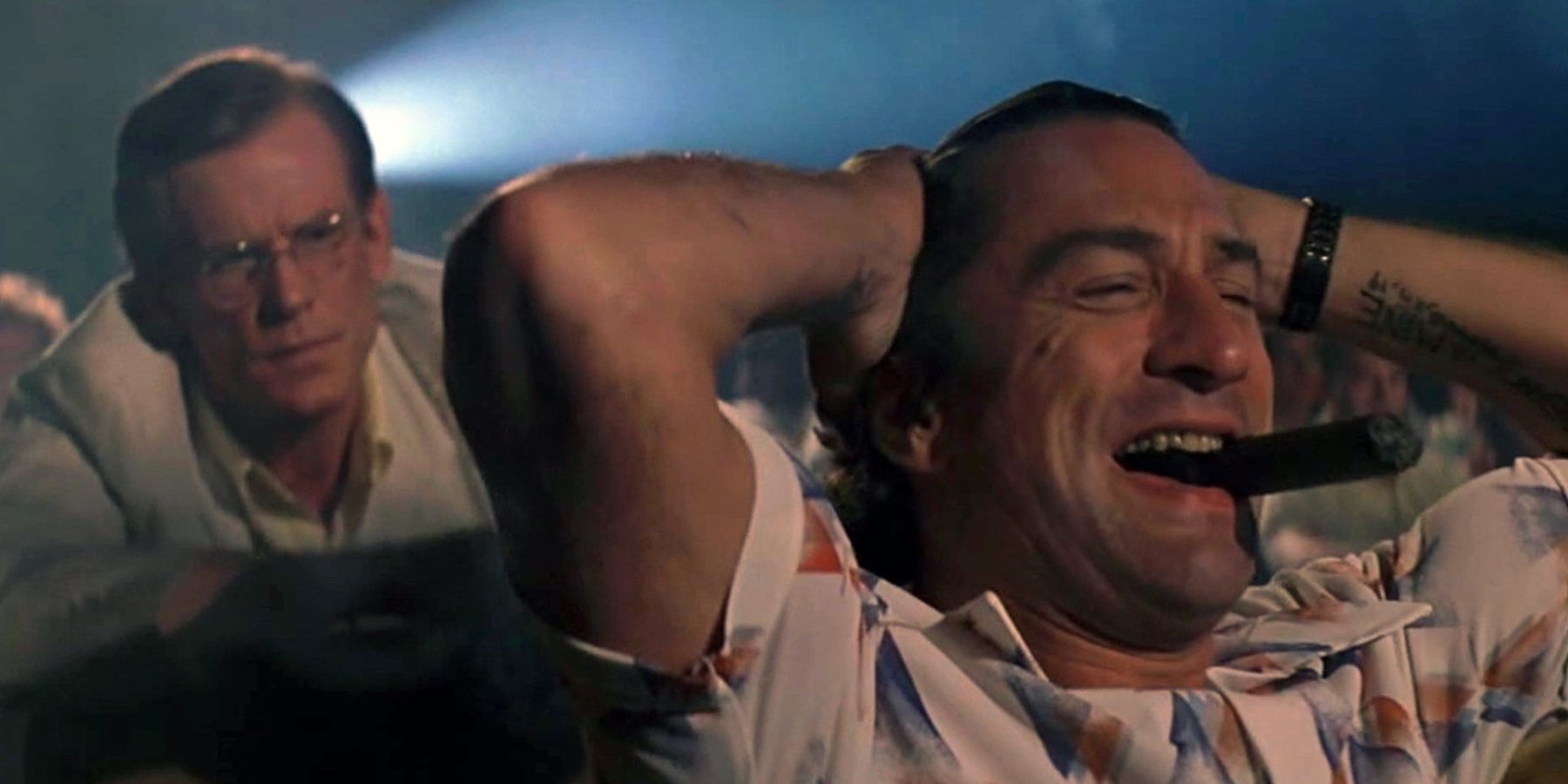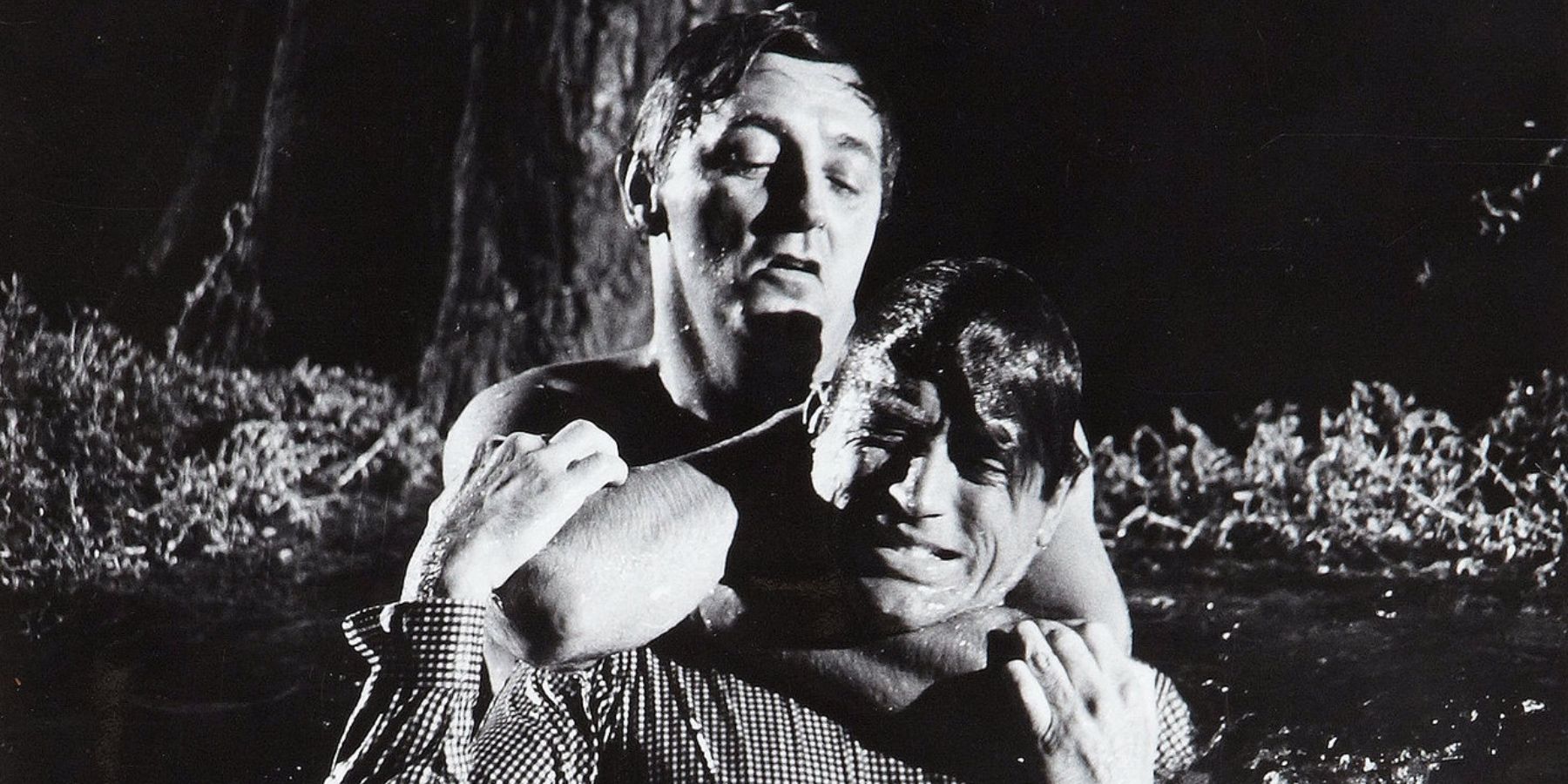Before Shutter Island, Martin Scorsese Directed This Other Terrifying Thriller

[ad_1]
Highlights
- Martin Scorsese’s “Cape Fear” is a gripping thriller that showcases the collaboration between Scorsese and Robert De Niro, with De Niro delivering a menacing performance as the villainous Max Cady.
- The film follows the story of Max Cady seeking revenge against Sam Bowden, the lawyer who defended him but hid evidence that could have reduced his sentence. Cady targets Sam’s family, using intimidation and violence to make them suffer.
- “Cape Fear” is a remake of a 1962 film, drawing inspiration from Alfred Hitchcock with its use of close-ups, lighting techniques, and a suspenseful score. It is a suspenseful and intense film that leaves a lasting impact on viewers.
Martin Scorsese is considered one of the greatest filmmakers of all time alongside the likes of Francis Ford Coppola and Steven Spielberg. From gangster features like Goodfellas, Casino, and The Departed to dramas such as Raging Bull and The Irishman, Scorsese is a director of many tastes. He is also an expert in the thriller genre, including Shutter Island, but before that film, Scorsese directed the 1991 thriller Cape Fear.
Cape Fear marks the seventh time Scorsese and renowned actor Robert De Niro have collaborated together on a film. The film also stars 48 Hrs. actor Nick Nolte, Jessica Lange, and current Yellowjackets actress Juliette Lewis. De Niro delivers one of his most menacing performances as Max Cady, a violent rapist who has the ability to control and harass anyone, like a predator seeking out his prey.
What is Cape Fear about?
In Cape Fear, Max Cady (De Niro) is released from prison after a fourteen-year sentence. Right away, Cady seeks vengeance against Sam Bowden (Nolte), the lawyer who defended Cady but hid evidence pertaining to the victim, which could have reduced Cady’s sentence or kept him out of prison. Since Cady lost a lot of time in jail, he intends to make Sam lose everything he loves and cares about most.
Cady constantly follows Sam near his job and his home in New Essex, North Carolina. Cady also assaults Lori, a County Courthouse clerk who works with Sam. Lori is encouraged to testify but is too fearful to do so because of Cady, and she doesn’t want her flirtation with Sam to go public. Cady then turns his attention to Sam’s wife, Leigh (Lange), and his shy daughter Danielle (Lewis).
The police are unable to arrest Cady since he’s always a step ahead of everyone, having studied the rules of law and order during his prison sentence, and is also physically imposing and intimidating. So Sam hires a private investigator, Claude Kersek, to keep Cady under surveillance. Despite this, Cady gets close to Leigh right outside her home and inappropriately kisses Danielle in her school. Three of Kersek’s men even manage to beat up Cady, but the villain overcomes serious injuries and beats them right back to a pulp.
De Niro is perfect as the repulsive Cady and is no stranger when it comes to portraying strong and physically transformative roles such as Jake LaMotta in Raging Bull and Travis Bickle in Taxi Driver. Cady is the type of villain who is intelligent, gruesome, and vile, while also convinced that he fully understands the law and the Holy Bible (which he also uses as inspiration to take down Sam and his family).
Is Cape Fear a remake?
Cape Fear is a remake of the 1962 film of the same name and based on John D. MacDonald’s 1957 suspense novel The Executioners. The original film stars Robert Mitchum as Max Cady, Gregory Peck as Sam Bowden, and Martin Balsam as police chief Mark Dutton (all three actors have special appearances in Scorsese’s remake). Reminiscent of Scorsese’s version, the original feature from director J. Lee Thompson drew inspiration from Alfred Hitchcock due to the use of close-ups, special lighting techniques (even for a moody black-and-white film), and a suspenseful score (from Bernard Herrmann who would go on to compose Scorsese’s Taxi Driver).
However, unlike Scorsese’s remake, Thompson’s original thriller doesn’t display explicit violence and sexual content and completely omits the word “rape” from the script. Despite the censorship and required cuts, the feature was still considered disturbing for a 1960s movie because of its hard-boiled storyline and references to Max Cady’s history of rape crimes, especially a sexual assault threat towards a child (Sam Bowden’s daughter Nancy).
How does Cape Fear end?
In the conclusion of Scorsese’s Cape Fear, after several unsuccessful attempts to stop Cady, the Bowden family decides to go away on their boat, so the police can track and arrest Cady for murdering Kersek and their housekeeper Graciela at their home. However, Cady eventually gets on the boat and harasses the family. When Cady forces Sam to watch him assault Leigh, Danielle sprays Cady with lighter fluid as he lights a cigar, causing the villain to burn and jump off the boat. Cady then returns to the boat, holds the family at gunpoint, and forces Sam to confess that he’s responsible for putting him in prison.
During the intense showdown, a storm causes the boat to radically shift, knocking Cady down. Leigh and Danielle manage to get off the boat, but Cady and Sam engage in a thrilling physical battle as the boat crashes. After the crash, Cady and Sam throw rocks and exchange blows at each other’s faces, but Sam takes advantage by getting angry and having Cady handcuffed to a pole on the boat. Sam nearly kills Cady with a big rock, but Cady ends up drowning along with the wrecked boat.
Cape Fear may seem like a typical thriller that’s reminiscent of a slasher or horror feature, but the performances of the primary characters (especially De Niro’s villain) are convincing and first-rate. Scorsese also has a high production value and filmmaking style that pays homage to the best Alfred Hitchcock thrillers (like Psycho) by using close-up shots, various camera angles, an elaborate title sequence, and a bombastic score (from Elmer Bernstein), along with Scorsese’s display of bloody violence. Cape Fear is also the type of thriller in which the hero defeats the villain, but the traumatic experience has forever changed this family and lingers with the viewers even till the end credits, signifying the talents of a great filmmaker telling a traditional but impactful story.
Source link


